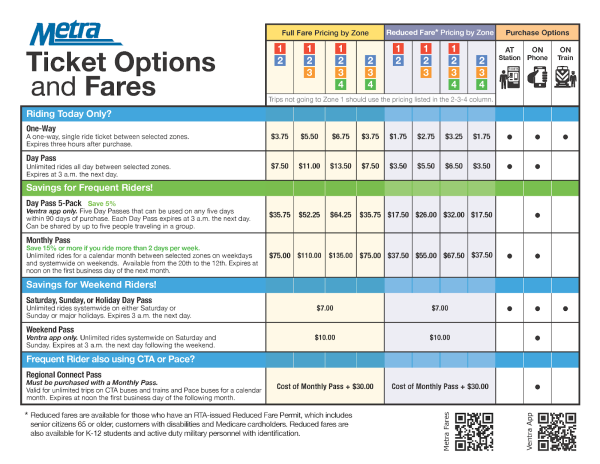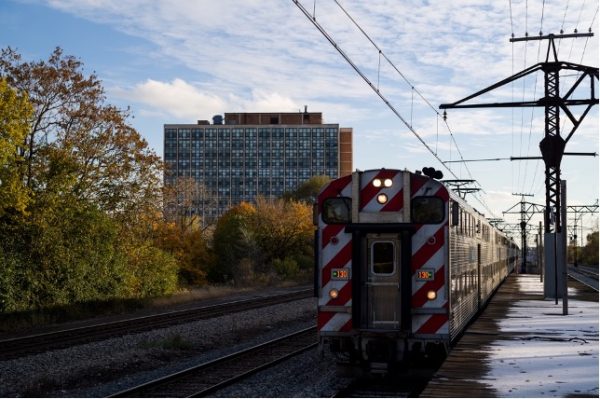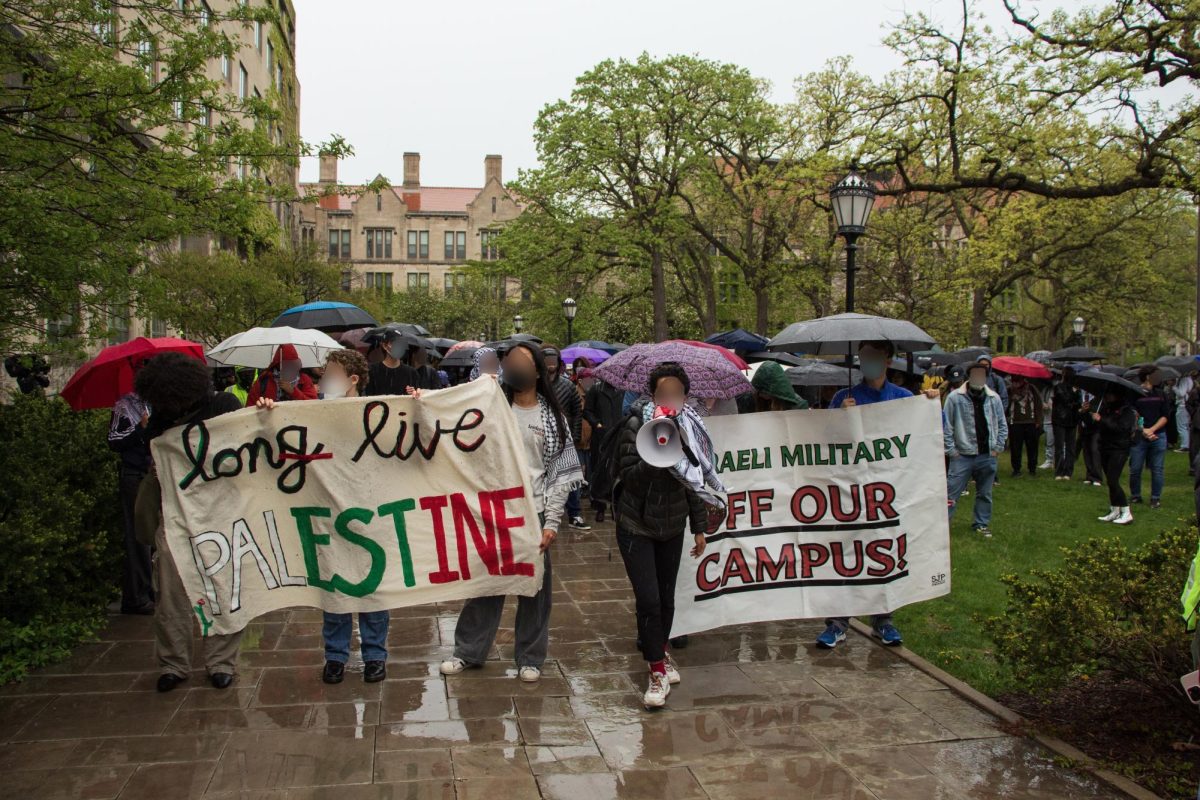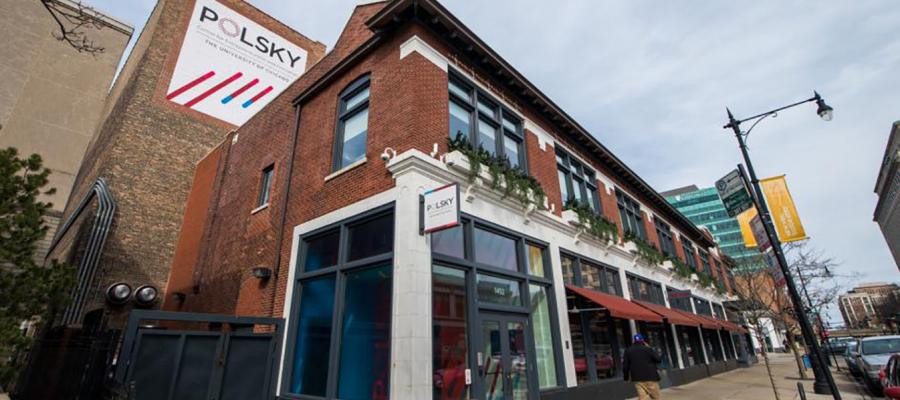On February 1, University of Chicago students and employees riding the Metra Electric District line may notice changes to their ride fares.
Under a plan announced in October, Chicagoland’s Metra Commuter Rail System, which operates the Electric District lines linking Hyde Park to the Loop via Millennium Station, will implement an all-new fare system for 2024.
The plan, which will take effect February 1, will consolidate Metra’s current distance-based 10-zone system into a four-zone system. A ticket downtown from any of the Hyde Park stations will cost $3.75, up from $2 under the current system.

The new plan also replaces the $100 “Super Saver” all-zone pass introduced during the pandemic with a selection of monthly passes that range from $13 to $75. Weekday day passes and discounted 10-ride bundles will also be eliminated. In his winter quarter safety message, Associate Vice President for Safety and Security Eric Heath indicated, that instead of 10 free rides per quarter, students will now receive five.
With the new structure, students commuting from downtown could pay less. In an email interview with The Maroon, Lance Hackney, editor-in-chief of Booth’s Chicago Business newspaper, noted that, while almost all Booth students rely on the Metra, most will save on passes as a result of the changes. Other students noted that the Metra is not the only form of public transportation, as the Ventra U-Pass and UChicago downtown connector shuttles already allow students to travel to the Loop and beyond for free.

The current fare structure was heavily subsidized during the pandemic by the Fair Transit South Cook pilot program, which is set to end January 31. The program was championed by Cook County Board of Commissioners President Toni Preckwinkle, who noted in a previous interview with The Maroon that some of “the longest commute times in the country are on the South Side of Chicago in the south suburbs,” with the Metra serving as a vital link to the rest of the city for residents.
Preckwinkle and Fifth Ward Alderman Desmon Yancy, who represents Hyde Park, did not respond to requests for comment on the changes.

The Fair Transit program will be replaced by a new “Access” program, available to low-income riders and encompassing the CTA and Pace suburban bus networks as well as Metra.

The price increases come as Metra has struggled to regain riders since the pandemic. According to the agency, about 260,000 people rode the Metra Electric line in December 2023, compared to 559,000 during the same period in 2019.
During the pandemic, the federal government provided emergency funding for transit systems, allowing Metra to continue service even as revenue plummeted. However, Metra expects federal aid to run out in 2026, creating a “fiscal cliff” for the agency. At a November 27 forum, Governor J.B. Pritzer vowed “to do whatever is necessary” to support the state’s transit agencies.
Earlier this year, Metra released its 2023-2027 strategic plan.
Of particular interest to Hyde Park and Woodlawn would be a project to reconstruct the 59th Street University of Chicago station, reopening the 60th Street entrance, adding elevators, and rehabbing the 59th Street entrance.
More broadly, the plan includes a proposal to transition Metra from a “commuter rail” to a “regional rail” system, meaning more service during off-peak commuting hours and trains operating at regular intervals, rather than peak times, all day.
In an interview with The Maroon, Metra Director of Communications Michael Gillis commented on what students can expect in the future.
“I would argue that we have taken steps towards [our strategic goals]… it’s not as far as you would expect for a regional rail model, but we did adopt schedules that spread out the rush period so that there’s more service in the off-peak hours,” Gillis said.
“Right now, we’re working on a study to identify what we can do in the near future to add service line-by-line.”
Gillis also addressed Metra’s sometimes-contentious relations with the many freight railroads that operate in and around Chicago.
“We have established relationships with all the freight carriers… and that is going to be one of the challenges, that we do not own most of the tracks over which our trains operate… so it’s going to take a lot of cooperation with the freight railroads. They’re willing to cooperate with us, but it might be that we need some infrastructure improvements in order to enable more service.”
When asked whether further fare hikes might be coming, he declined to comment on specifics.
“We had a funding system before COVID happened that provided us with subsidies that covered roughly half of our operating costs. That model isn’t working anymore because of the way ridership plummeted, and so there’s going to have to be some changes.”
Gillis noted the legislature was considering alternate funding formulas but cautioned that the future was uncertain. “Transit in the Chicago area, and in the entire country, is at a crossroads due to the impact of the pandemic,” he said.
When asked about how the fare changes might hit South Side riders, he said “The changes we made on [February 1] are, from the perspective of someone who rides the Rock Island and Metra Electric lines, increases, but that’s only because Cook County was subsidizing lower fares on those lines, and that subsidy is ending at the end of this month. It’s not a complete change because Cook County and the RTA are now launching a new program that will provide reduced fares, not just to riders on those lines but to riders on all 11 lines, as long as they qualify for SNAP benefits.”
Gillis said Metra was exploring the possibility of expanding the reduced-fare program currently available for high school students to college students.
Additionally, in a podcast interview, Metra CEO Jim Derwinski discussed the agency’s unexpected success in attracting non-commute trips, saying that “weekend, evening and midday ridership were the surprises [of the post pandemic era]” and that “the discretionary rider is picking up a lot more now.”
He also said that “on some lines we’ve had the opportunity to put out a more robust schedule that gives more frequent service, spacing out the rush hours, flattening the peaks, and on those lines we’ve seen some very good ridership gains.”
He also noted that this increased service is not possible on all of Metra’s lines because much of the tracks are owned by freight companies, curtailing the agency’s ability to set its own schedule. The Electric District is one of the few lines fully owned by Metra itself.

Metra’s plan pledged to continue efforts to pursue fare integration with the CTA, which would potentially allow students to use their Ventra cards to pay for trips. However, some regional leaders, including Preckwinkle and the Chicago Metropolitan Area Planning Authority, have gone even further, calling for the unification of Metra, the CTA, and Pace as all three agencies struggle in the post-COVID era.











